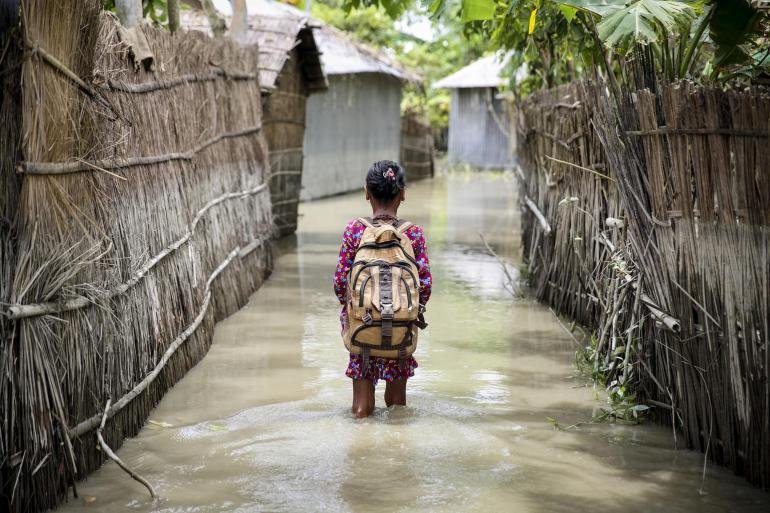UN Child Rights Committee has issued a new report highlighting the urgent need for governments to safeguard children’s rights to a clean, healthy, and sustainable environment.

The United Nations Child Rights Committee has issued a new report highlighting the urgent need for governments to safeguard children’s rights to a clean, healthy, and sustainable environment.
The report underscores how climate change is jeopardizing children’s rights to life, survival, and development, emphasizing that young children are among the most vulnerable yet often excluded voices in climate change discussions.
The report, crafted with input from young people, offers comprehensive guidance for governments to address these critical issues. Key recommendations include the phased-out use of fossil fuels in favor of renewable energy sources.
UN member states will also be called upon to implement measures to shield children from the adverse impacts of climate change. This includes monitoring air quality, regulating food safety, mitigating emissions, and reducing toxic lead exposure.
Additionally, the report underscores the growing link between climate change and children’s mental health. It identifies the rise of eco-anxiety and depression among children as a concerning trend, which must be addressed. The UN calls for the active inclusion of young people in the formulation of climate-related guidance.
Governments, the report emphasizes, bear the responsibility not only for protecting children from immediate harm but also from the long-term consequences of climate change. They can be held accountable for environmental damage within their borders and beyond.
The report’s compilation involved two rounds of consultations with participating countries, national human rights institutions, international organizations, experts, and a committee of 12 young climate change advisors. These advisors received input from 16,331 children across 121 nations, who shared their experiences of how environmental degradation and climate change affect their lives and communities.
Ann Skelton, who leads the committee, stressed the legal significance of the guidelines, stating that they clarify governments’ obligations to safeguard children from environmental harm and to provide them with clean environment.
She emphasized that children are not only the leaders of tomorrow but also the architects, thinkers, and change-makers of today’s world, asserting their voices’ importance and their right to be heard.
The report’s release comes at a time when scientists and politicians alike are increasingly recognizing the planetary crisis posed by climate change.
It is widely acknowledged that the rapid climate change witnessed in recent decades is primarily driven by human activities, making it imperative to take immediate and comprehensive action to protect the environment and secure the rights and well-being of children worldwide.